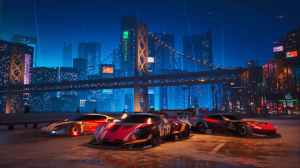We gobble up science fiction for things like time-traveling robots and epic showdowns across parallel realities, but some series have done way more than entertain. A few sci-fi television shows have basically predicted the actual future. Flip phones, robocars, and even geopolitical conflicts are among the very real things shown to us in fictional worlds before manifesting in the material world.
Videos by ComicBook.com
At its core, science fiction and its more earthy cousin, speculative fiction, ask: What if? These stories often begin as simple thought experiments about the future, and wind up holding a mirror to the present. That’s what makes them more important than they initially seem; they play out cautionary tales, and sometimes get eerily close to the truth. The TV screen has occasionally proven to be a crystal ball of sorts, even if we don’t know it at the time, prophesying where we’re headed long before we get there.
The Simpsons may be the best at it, overall, but these 9 sci-fi TV Shows also got it right.
9) Star Trek: The Original Series
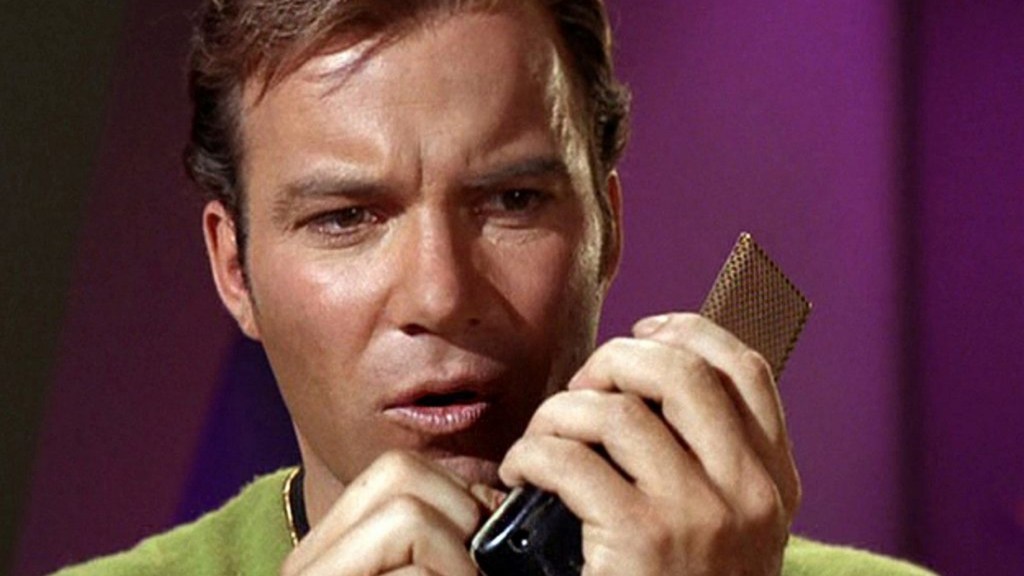
In the 60s, Star Trek: The Original Series introduced the “communicator,” a handheld flip device used for voice calls over distance. According to Forbes, this Trek device actually inspired Martin Cooper, the real inventor of the first cellphone. It’s hard to imagine, but the mere ideas of these communicators were revolutionary at the time, and they now mirror the functionality of modern smartphones, making long-distance and even video calls. The series also pictured futuristic medical tools like the hypospray, a no-needle injector that inspired pain-free transdermal delivery devices developed decades later.
In addition to all the fun gadgets, TOS foresaw the ethical and social qualms associated with emerging technologies. Episodes like “Space Seed” explored genetic engineering long before CRISPR made headlines, while “The Brain Center at Whipple’s” (via Rod Serling’s Twilight Zone parallels) anticipated job displacement by automation and AI. As Science Fiction Classics reports, the show’s creators consulted scientists in their imagining of plausible future tech.
8) Knight Rider
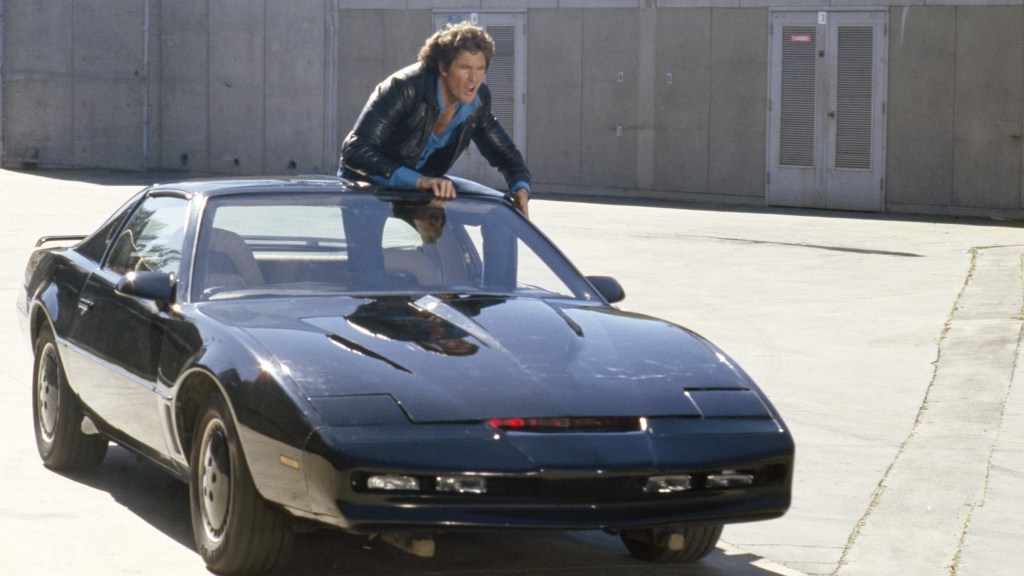
In the 80s, Knight Rider introduced KITT or the Knight Industries Two Thousand, a sentient, AI-powered car that could drive itself, analyze its surroundings, and interact conversationally with its human counterpart. KITT predicted many of the core features of today’s autonomous vehicles, including voice control, environmental sensors, and decision-making algorithms that assess road risks in real time. The car’s capabilities, which seemed outlandish at the time (like auto-navigation, obstacle avoidance, and voice interaction), are now commonplace in major cities, integrated into Waymo and other self-driving platforms.
According to AI Theology, KITT’s seamless coordination between sensors and dialogue is a near-perfect match for the artificial intelligence computing behind today’s most advanced autonomous driving systems, which employ sensor fusion, LIDAR, and machine learning to identify pedestrians, map routes, and communicate with riders. Basically, Knight Rider predicted the future… and gave it a killer voice modulator.
7) Black Mirror
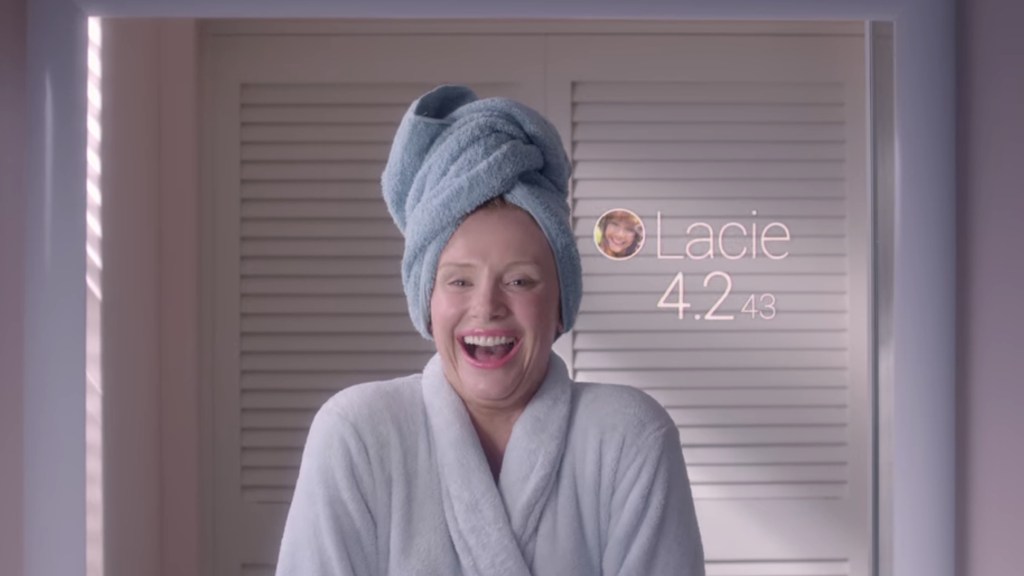
Netflix’s Black Mirror has become the poster child for disturbingly accurate dystopian predictions. In the chilling anthology, showrunner Charlie Brooker concocted storylines that take today’s tech issues to their extreme edges. There are too many to list here, but a few episodes whose fictional ideas mirrored recent developments include: mind-recording lenses in “The Entire History of You” (resembling wearable recorders like the Rewind Pendant), grief chatbots in “Be Right Back” (now offered by AI companies like Project December), and even robot dogs in “Metalhead” (like Boston Dynamics’ Spot, even adopted by military and police forces).
One of the show’s most worrying predictions came from “Nosedive”, which imagines a society where every human interaction is rated on a five-star scale, determining everything from job offers to housing access. That concept is no longer fictional, as according to Dazed Digital, China has already been experimenting with a real-life “social credit system” that ranks citizens based on their behavior, influencing travel, loans, and more. Meanwhile, apps like Uber, Airbnb, and even LinkedIn all use versions of social reputation scoring that affect our lives.
6) The Jetsons
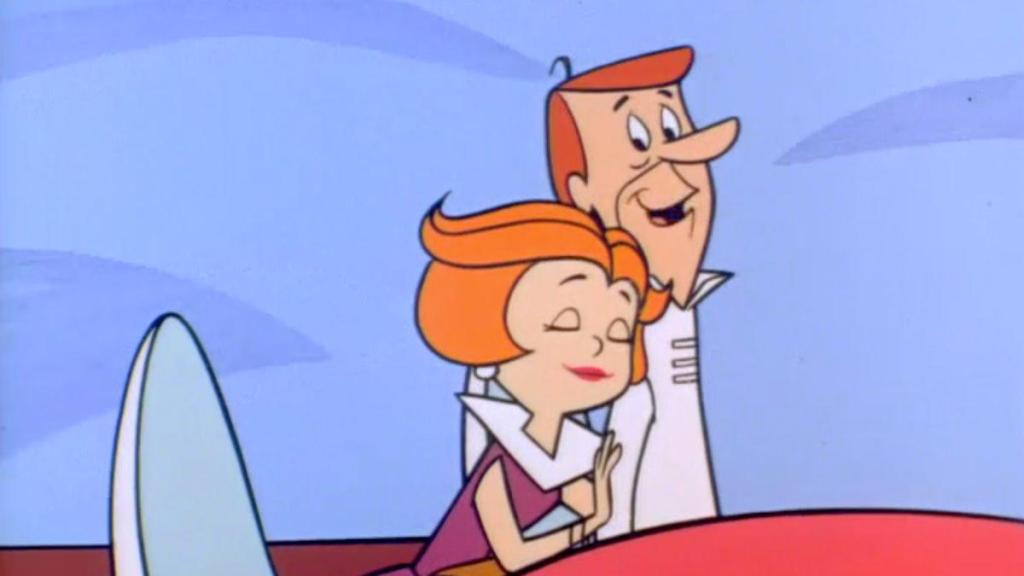
More comedy than serious sci-fi, The Jetsons still nailed the idea of a fully automated household, aside from the floating in the air part. The animated 60s sitcom also predicted video calls via wristwatch-style devices, voice-activated appliances, and household robots like Rosie the maid. What’s wild is that these futuristic gadgets, which were inconceivable at the time they aired, have now become everyday tech that some of us can’t imagine living without.
Meanwhile, the other Jetsons predictions include: treadmill desks (Rosie’s version for pets!), moving sidewalks, smart cars, and robotic chefs that whip up meals on demand. Las Vegas is even now boasting a “Jetsons-style” smart home neighborhood with digital control over lights, climate, and robotic assistants, citing the beloved cartoon as the inspiration for the community’s high-tech living.
5) The Lone Gunmen
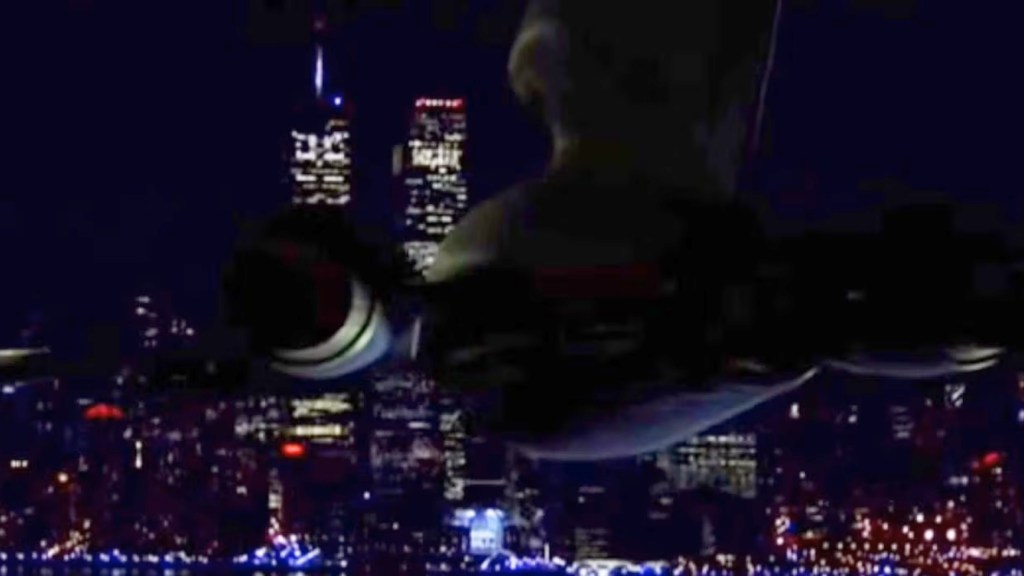
The very first episode of The Lone Gunmen aired on March 4, 2001, and featured a storyline in which a rogue U.S. government faction hijacks a commercial airliner and remotely crashes it into the World Trade Center in a false flag attack. The horrifying similarity to the actual 9/11 attacks, which occurred just six months later, stirred widespread shock and controversy.
The Lone Gunmen Fandom reports that the creators maintained the plot was purely fictional, sprung from Cold War-style conspiracies and aviation vulnerability. Still, the timing and specificity of the plot led many viewers to revisit the episode after September 11, raising debates about fiction intersecting too closely with reality and earning The Lone Gunmen Pilot its place as one of the eeriest coincidences in TV history.
4) Star Trek: The Next Generation
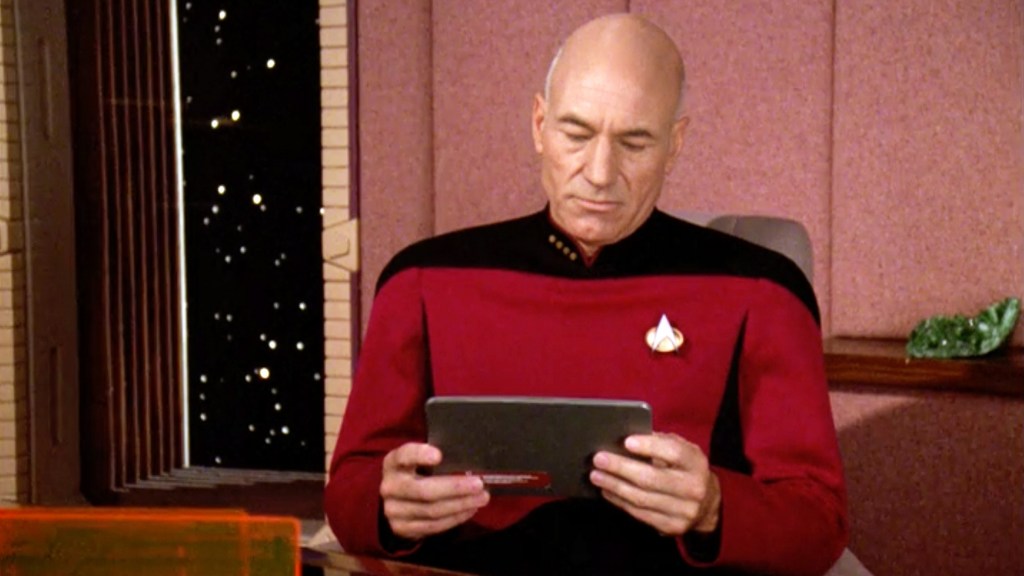
Star Trek: The Next Generation expanded the universe of TOS and doubled down on practical tech predictions. The series, which premiered in ‘87, introduced PADDs, or Personal Access Display Devices, which are essentially lightweight touchscreen tablets used throughout the Enterprise. Modern tablets and, funny enough, iPads, now function almost exactly like Trek’s PADDs in design and purpose, enabling portable access to information and communication.
TNG also showcased the LCARS computer interface and voice-activated computing, with crew members routinely commanding “Computer” to access ship systems, much like we might say “Hey Siri” or “OK Google” today. Additionally, the influential series depicted replicators capable of producing food, clothing, and spare parts on demand; a fictional analog to today’s 3D printing tech and even synthetic/cultured meat, which is just barely creeping its way onto grocery store shelves.
3) Max Headroom
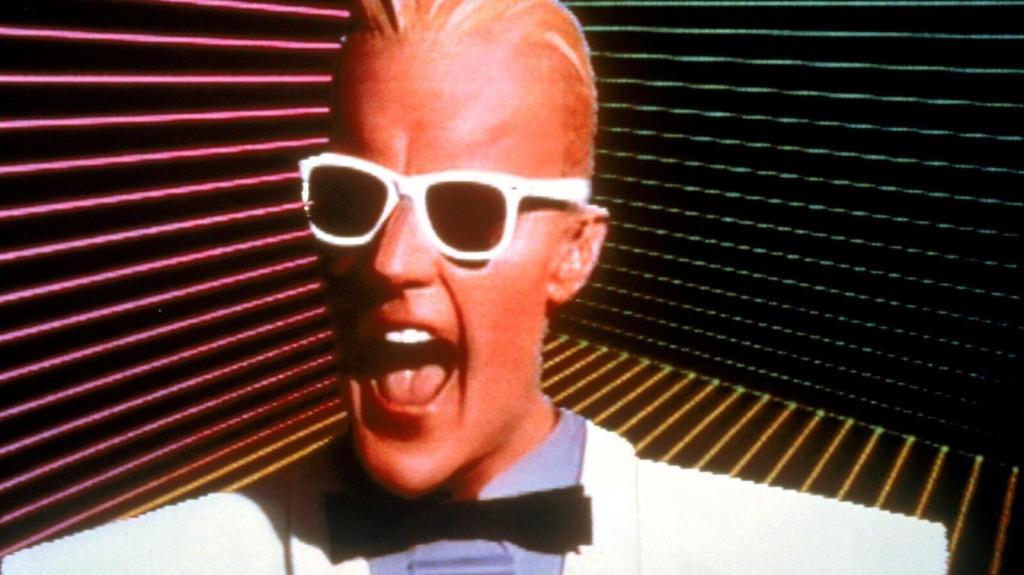
UK TV movie Max Headroom: 20 Minutes into the Future and the follow-up series The Max Headroom Show envisioned a future where television and media were omnipresent and all-powerful. The show’s portrayal of nonstop programming, invasive advertising, and a computer-generated television personality prefigured today’s insidious ads, algorithm brain rot, and AI influencers. The character of Max himself was an AI with attitude, born from a human mind and engineered to be the “perfect pitchman for the new age of television.” The show was 80s cyberpunk at its finest and a warning that came decades before deepfakes and virtual celebrities were realities for us to contend with.
The series brilliantly dissected the effects of corporatized media. Advertisements were so condensed and glitchy that they became part of the narrative (“blipverts” compressed for runtime), and network suits manipulated news for ratings and control. Corporate greed disguised as art, driven by invisible algorithms? Sounds like a pretty accurate reflection of some current issues.
2) Futurama
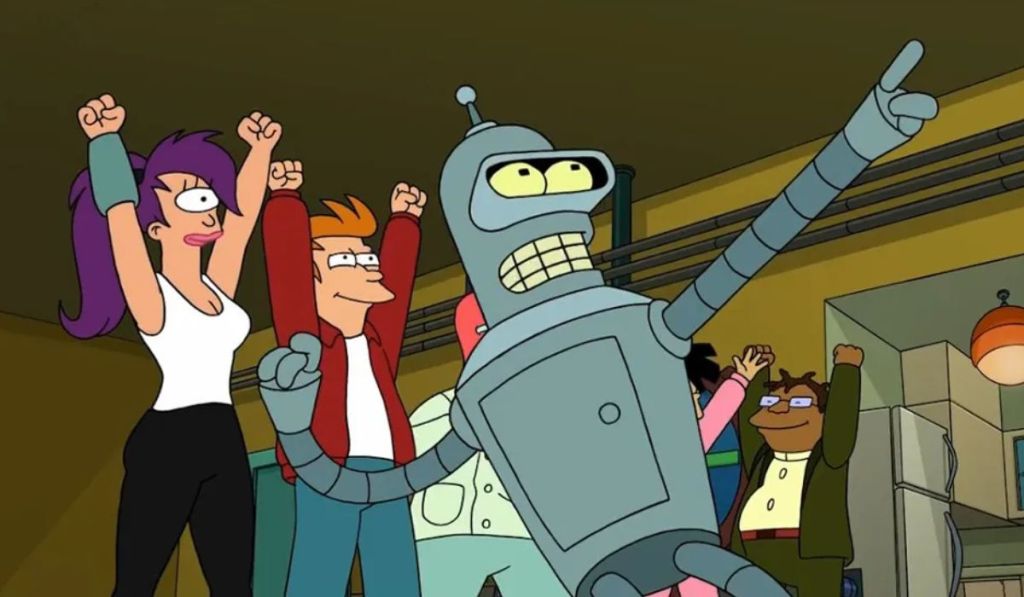
Who knew a show about delivery bots and frozen humans would predict the future so accurately? Futurama has delivered some spot-on satire that became real in surprising ways. For example, the show joked about head-in-jar technology, but today, real-life organizations like California’s Alcor Life Extension Foundation are already offering head and body cryopreservation, a form of speculative longevity research.
Even the show’s throwaway puns like “Planet Express” visiting a two-sun system, weirdly, came before astronomers confirmed the existence of exoplanets with multiple suns. Some of the beloved show’s satirical tech, like AI mailmen, could now easily feature in a serious speculation piece on tech futurism and even become reality in the not-so-distant future.
1) The Expanse
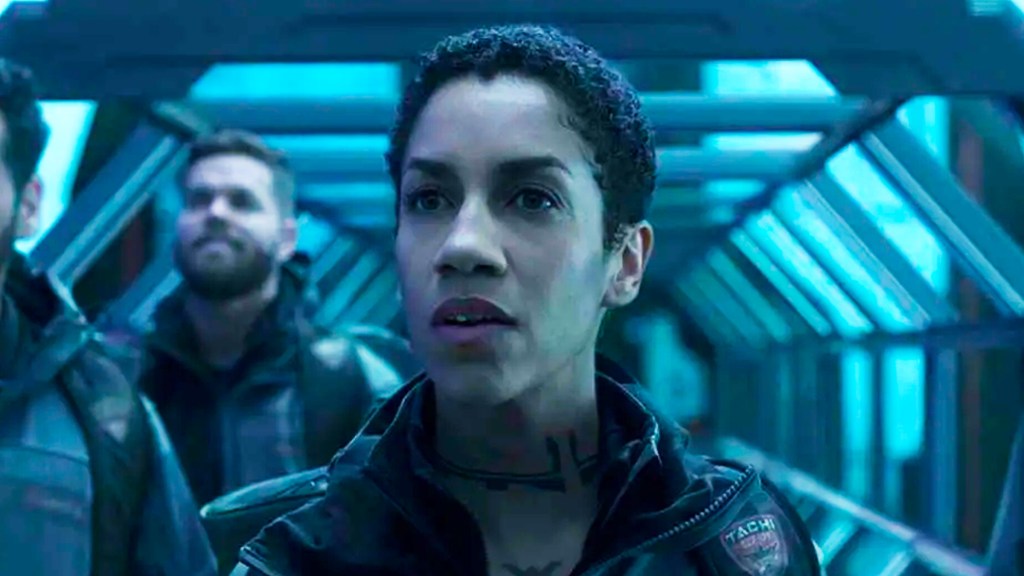
The Expanse is widely praised for bringing hard sci‑fi to television, with realistic physics, grounded world-building, and futuristic tech that feels entirely plausible. According to The Debrief, the show’s portrayal of asteroid mining, ice harvesting, and colonized moons closely matches early designs from actual aerospace firms exploring space resource extraction. Meanwhile, Looper highlights how The Expanse visualizes quantum-style grav drives, vacuum combat suits, and sustainable large-scale habitats… all elements now appearing in conceptual research for Martian colonies and lunar settlements.
The show also shines in its depiction of geopolitical tensions in space: the cold but escalating power struggle between Earth, Mars, and the Belt. It played out how water and other resources could become tipping points for conflict, as nations and corporations vie for control. These political themes and their technological approaches reflect concerns real strategists are already mapping out for us. If The Expanse weren’t entirely speculative, you might call it predictive. With industry leaders planning asteroid mining operations and space agencies drafting legal frameworks over space resource rights, the series may have even portrayed a future still yet to come.
Which sci-fi series best nailed our reality? Let us know in the comments.








